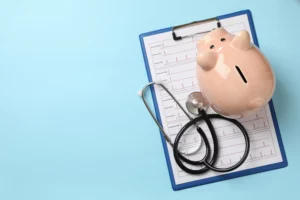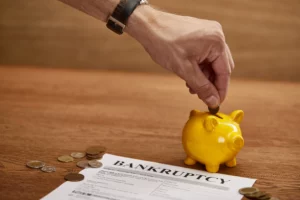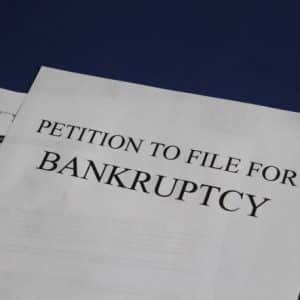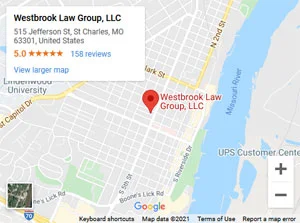Seek Legal Guidance When Filing For Chapter 7 Bankruptcy in Missouri
Drowning in debt can feel overwhelming and hopeless, but there may be a light at the end of the tunnel. Bankruptcy, Chapter 7 particularly, in Missouri could be a solution if you’re living in the state and facing a mountain of credit card bills, medical expenses, or other unsecured debts.
Bankruptcy is a powerful legal tool that allows you to eliminate qualifying debts and rebuild your financial future. However, filing for bankruptcy can be complicated with specific rules and procedures.
Short Summary:
- Understanding bankruptcy is essential for anyone struggling with overwhelming debt. It’s a legal process that can provide significant financial relief by eliminating or reducing your debts, giving you a fresh start.
- Chapter 7 bankruptcy lets you eliminate most unsecured debts by selling non-essential assets. That provides a clean slate to rebuild your finances.
- Qualifying for Chapter 7 requires meeting certain criteria, including court order compliance, credit counseling, and a means test.
- Filing for Chapter 7 involves completing financial paperwork, paying fees, and cooperating with a trustee. You’ll attend a creditor’s meeting and address any objections before completing a debtor education course to discharge your debts.
- Beyond Chapter 7, there are other options. You can negotiate with creditors, seek credit counseling, or explore debt settlement. You can also try do-it-yourself debt payoff methods, consolidate debts, refinance your mortgage, borrow from loved ones, increase your income, or cut expenses.
What is Bankruptcy?
Filing for bankruptcy is a way for people and businesses drowning in debt to get help from the court. It’s like asking for a financial reset. When you file for bankruptcy, you tell the court about your money situation and explain that you can’t pay back all the people you owe money to.
If the court agrees, it can wipe out some or all your debts, meaning you don’t have to pay them back anymore. That can give you a chance to start over and make a plan to handle the debts you still have. You can also work on improving your credit for the future.
What is Chapter 7 Bankruptcy?
Chapter 7 bankruptcy, also known as liquidation bankruptcy, is a legal process allowing individuals to eliminate most of their unsecured debts. Here’s a breakdown:
- Liquidation: Nonessential assets are sold off by a court-appointed trustee. The proceeds are used to pay back creditors some of what they’re owed.
- Unsecured Debts: These are debts not backed by collateral, like credit card bills, medical expenses, and personal loans. Chapter 7 typically discharges these.
- Fresh Start: Once the process is complete, the remaining eligible debts are eliminated, offering a clean slate for rebuilding finances.
How Does Chapter 7 Bankruptcy Work?
Starting a Chapter 7 bankruptcy process involves filling out a bunch of paperwork and submitting it to the bankruptcy court in your area. Along with the main form, you’ll need to provide details about what you own, what you owe, your income and expenses, any contracts or leases you’re tied to, and your recent tax returns.
If you’re an individual dealing mostly with personal debts, there are extra forms you’ll have to include, like proof of attending credit counseling and any repayment plans you’ve made.
There are fees involved in filing for bankruptcy, typically around $335, but you might be able to pay it in installments if you get the court’s permission. If you’re struggling financially, you might even get these fees waived.
You’ve got to be honest about everything in your paperwork because it’s all reviewed by a trustee appointed by the court. They’ll hold a meeting with you and your creditors to ask questions and make sure everything’s in order. It’s crucial to cooperate and provide any extra info they ask for.
During this process, you’re protected from most collection actions by something called an “automatic stay.” That means creditors can’t bother you with lawsuits or wage garnishments while your bankruptcy case is ongoing. However, certain actions might not be stopped by this stay, like ongoing family court proceedings or criminal cases.
If you’ve filed jointly with your spouse, you both have to attend this meeting, and you’ll both get questioned. Afterward, the trustee will decide if your case should proceed and if you’re eligible for a discharge of your debts.
If things change or you realize you need a different type of bankruptcy, you might be able to switch to a different chapter (like 11, 12, or 13), as long as you qualify and you haven’t already switched before.
How Can I File for Chapter 7 Bankruptcy in Missouri?
Filing for bankruptcy, Chapter 7 in Missouri especially, involves several steps:
Picking Between Bankruptcy Chapters: Which is Right for You?
When considering bankruptcy, most people think about either Chapter 7 or Chapter 13. But figuring out which one suits you best isn’t always easy.
Chapter 7 bankruptcy is popular because it can erase debts in just a few months without requiring repayment to creditors.
On the other hand, Chapter 13 is more complex and costly, as it involves repaying your disposable income to creditors over three to five years. Naturally, most folks prefer Chapter 7 if they can.
However, some high-income earners might not qualify for Chapter 7 and might have to go with Chapter 13 instead. Also, Chapter 13 might help you hold onto assets like your home or car that you’d lose in Chapter 7.
Examining Your Debts: What Can Chapter 7 Bankruptcy Do for You?
Chapter 7 bankruptcy can wipe away many types of debts, but not all. It’s important to understand what debts you can discharge (eliminate) and which you can’t.
Bankruptcy law doesn’t list the debts you can discharge but rather those you can’t, like child support, student loans, and recent taxes. Most other debts, like credit cards and medical bills, can usually be wiped out in Chapter 7.
However, it’s essential to check your specific debts because not everything can be erased. For instance, luxury purchases made shortly before bankruptcy might not be dischargeable.
Figuring Out Exemptions: Can You Keep Your Stuff in Chapter 7 Bankruptcy?
In Chapter 7 bankruptcy, you’ll need to see if you can keep your belongings or if they might get sold to pay off your debts. Each state has its own rules about what property you can keep.
Common exemptions include household items, some business equipment, retirement accounts, and a part of your home and car equity. However, items like valuable collections might not be protected.
Checking Eligibility: Do You Qualify for Chapter 7 Bankruptcy?
Chapter 7 is designed for people with low incomes who can’t afford to repay their debts. To see if you’re eligible, you’ll need to pass the Chapter 7 means test unless you’re exempt.
The means test compares your income to the median for your state and family size. Filing for Chapter 7 bankruptcy in Missouri also depends on your income over the next 60 months. Here’s a breakdown:
- Below $7,475: You likely qualify for Chapter 7.
- Above $12,475: You likely cannot file for Chapter 7.
- Between $7,475 and $12,475: More calculations are needed to see if you qualify.
Completing Credit Counseling
Before filing for Chapter 7 bankruptcy, you must complete a credit counseling course. That can usually be done online or over the phone and should be done within 180 days before filing.
Filling Out and Submitting Forms
Filing for Chapter 7 involves filling out many forms detailing your financial situation. These forms include everything about your income, expenses, debts, and property.
You’ll also need to pay a filing fee, but you might be able to split it into payments or have it waived if you meet certain income criteria.
Providing Documents to the Trustee
You’ll need to give the trustee assigned to your case financial documents to prove the accuracy of your forms.
Meeting with the Trustee
You’ll have a meeting with the trustee to go over your finances and answer any questions they might have.
Dealing with Objections and Motions
If there are any disputes about your case, you might need to handle objections or motions before your bankruptcy is finalized.
Finishing a Debtor Education Course
After you meet with the trustee, you’ll need to complete a debtor education course before your debts can be discharged.
That’s It!
Once you’ve completed all the necessary steps, you’ll likely feel a sense of relief as your qualifying debts are discharged, and creditors can no longer hassle you.
What are Alternatives to Chapter 7 Bankruptcy?
There are several alternatives to Chapter 7 bankruptcy that individuals and businesses can explore:
- Know your rights: If creditors are harassing you, understand your legal protections and fight back.
- Talk to creditors: Try negotiating a lower payment plan directly with them.
- Seek credit counseling: A non-profit agency can help you manage your debt and explore options.
- Debt settlement: A risky option where a company negotiates reduced payments with creditors, but it hurts your credit score.
- Do-it-yourself debt payoff: Create a plan to pay off your debts yourself using methods like the snowball or avalanche approach.
- Consolidate your debt: Get a loan to pay off all your smaller debts into one lower-interest payment.
- Refinance your mortgage: If you have home equity, consider refinancing to free up cash to pay off debt and lower your monthly payment.
- Borrow from loved ones: Ask family or friends for a loan or financial help.
- Increase your income: Check ways to earn more money, like asking for a raise, taking a side hustle, or freelancing.
- Cut your expenses: Create a budget and cut unnecessary spending.
Contact Our St. Charles Bankruptcy Attorney Now!
If you’re considering filing for Chapter 7 bankruptcy in St. Charles, Missouri, it’s essential to understand the process and requirements involved. From determining eligibility to completing the necessary paperwork and attending meetings, navigating bankruptcy proceedings can be complicated. However, seeking legal guidance can ease much of the stress and uncertainty.
At Westbrook Law Group, LLC, we help individuals and businesses in St. Charles and surrounding areas navigate bankruptcy effectively. With our experience and personalized approach, we can guide you through every step of filing for Chapter 7 bankruptcy, ensuring that your rights are protected and your interests are represented.
Our St. Charles bankruptcy law firm offers a free consultation to discuss your financial situation and explore your options for debt relief. Don’t hesitate to contact us today to schedule a free consultation and take the first step toward a fresh financial start. Call us now to learn more about how we can help you regain control of your finances and move forward confidently.






